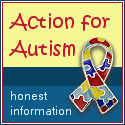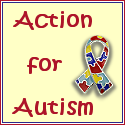Our conversation in the national autism centre is, as planned, interrupted by a young woman who takes our son on a tour at the location.
The calm conversation changes when the oldest lady moves, with an unexpected short bust of energy, her body towards us.
With a sense of amazement I see her face changing and hear her voice getting sharper.
It's the father she targets after a fast look at me.
"We know autisme is genetic. Do you have any idea where it comes from?"
It's more a frontal attack than asking questions to complete a family profile or stating a fact.
The lack of accent on "we" creates the idea that the question is often used the same way.
"You" in my language has a polite form and it's used without the normal emphasis, downgrading it to neutral, bland, word and at the same time taking away any personal meaning.
But we're in the national autism centre, zo I assume they know how to relate to other people.
Without taking a breath before speaking, with visible amazement, the father mentions his brother and, after a short look at her face, himself.
The acknowledgement is almost tactible.
Clearly uneasy he ads: "That's why my wife has to take care of almost everything in our family."
A fast look at me should be the signal to the woman to stop interrogating him.
The bright rays of sun are unable to break the crisp uncomfortable feel in the room.
Just at the moment I think that it's time to take over the lead of the conversation the woman resumes: "It won't be easy with autistic sons".
Almost grateful for moving away from his achnowledgement he hastely ads: "No. It takes time to accept that, because every father wants his son to be normal."
It sounds like a closing sentence and is accepted as such.
The lady once more invests energy in a posture change, this time towards me.
Without changing anything in her facial expression she utters a sentence that should have sounded very understanding. "It's a difficult family. A heavy task for you."
It sounds like a far too many times repeated part of a bad theatre play and the complete lack of empathy, intended or not intended, stays with us when we go home.
There's more empathy in a written comment to a blogpost than at that moment in that small room in what should be the centre of autism knowledge and treatment.
Professionalism as a theatre piece, it seems.
The autumnleaves are waiting on the pavement for our feet to make them swirl through the sky.
The sharp wind is not stinging anymore, but feels fresh and authentic.
Subscribe to:
Comments (Atom)





